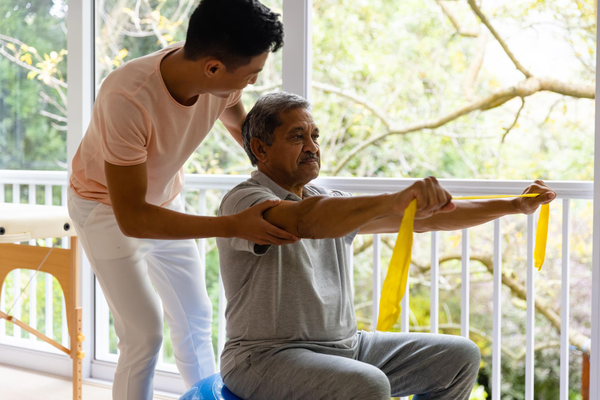
Last updated on by MRC
Speech therapy evaluates, diagnoses, and treats speech, language, and other communication disorders. Speech therapy focuses on issues like fluency, phonology, and articulation in order to improve communication, language, and speech skills.
You should consider speech therapy if you or your loved ones:
It would be best if you worked with a speech-language pathologist to practise speech therapy exercises to improve your language skills. In the meantime, you can practise these speech therapy exercises at home.
Here are some speech therapy exercises you can try at home:
Doing tongue movements helps you train your tongue to move in coordinated ways, which will help you cultivate better speech.
This exercise involves opening your mouth and sticking your tongue out to do different movements.
Here are a few tongue movements you can practise:

Here’s another form of exercise that promotes facial muscle strength and control.
You can try puckering your lips to make kissy faces. Repeat as many times as you can. You can decrease the pace for more controlled movements.
Another way to practise facial movements is by smiling, which improves oral motor skills. In front of the mirror, say Cheese, practise smiling, and then relax. Repeat as often as you can.
Practising these exercises in front of the mirror is essential as it aids feedback that fuels your brain.
After finishing the straightforward speech therapy tasks, let’s move on to something more challenging.
Pair a consonant that you find challenging to pronounce with each of the 5 vowels (a, e, i, o, u). For instance, if you have problems pronouncing the letter “r,” practise repeating “ra, re, ri, ro, ru.”
Try this with all consonants if you’re feeling ambitious.
Word Problems are an excellent way for adults to exercise for it. Even though they aren’t producing speech, such games challenge language processing skills in patients.
Brain games help you to enhance speech if practised regularly.
Try games such as solitaire or alchemy to work on your visual processing and comprehension skills.
Try word problems like word searches or crossword puzzles to exercise your problem solving and visual processing.
Some patients have impaired ability to move their lips and tongue.
Therefore, reading out loud provides an opportunity to practise their speaking skills. Throughout this process, patients are advised to be calm and consistent.
Storytelling builds an emotional connection making the process easier to cope with. They can start small by narrating a few sentences over short intervals and then progress further.
If you are looking for a trustable centre for Speech Therapy in Kolkata, Medical Rehabilitation Center should be your first choice.
Ranked As One of the Top Neuro Rehabilitation Centres, MRC offers extensive speech therapy in Kolkata. Our speech-language pathologists evaluate the patient’s speech to determine whether they have a language-based disability and develop a therapy plan based on their requirements. We are passionate about your health and therefore our speech therapists help the patients with various vocal exercises for their thorough recovery.









